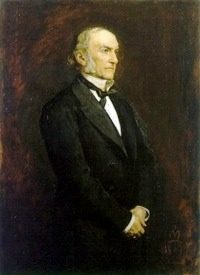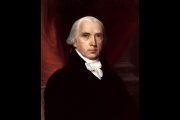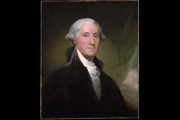
Most people identify February 14 with Valentine’s Day, a holiday confined mostly to the red end of the spectrum and filled with chocolate, flowers, and sticky, sweet heart candies bearing inane messages like "Be Mine" and "URA QT." Few realize it is a date of special significance to our nation’s constitutional foundation.
February 14 marks the anniversary of the death of Sir William Blackstone, the renowned English jurist whose Commentaries on the Laws of England played a formative role in the basis of law in the United States and greatly influenced our nation’s Founding Fathers. In fact, Researchers have found Blackstone to be the second most frequently quoted author by the framers of the Constitution. U.S. Chief Justice George Sharswood, who served in the Supreme Court from 1878 until 1882 wrote: "For almost a century the Commentaries have been the first book of the student of law; and whatever criticisms have been or may be made upon their learning or accuracy, the fact is that no lawyer fails to make them a part of his course of study sooner or later."
Indeed, Blackstone’s Commentaries have come to be known as the bible of American law. They were certainly the blueprint for our U.S. Constitution. The strength and stability of Blackstone’s teachings lies in his belief that human laws, like scientific laws, are not subjective whims but objective absolutes created by God. He taught law follows a hierarchical system requiring reason, submission to proper authority and the restraint of free will.
His biography in the 1915 edition by Callaghan and Company of Chicago offers a brief glimpse into the life of this amazing and influential individual. His father died before he was born in 1723 in England. His maternal uncle, Dr. Thomas Bigg, took charge of the young boy and ensured him a good education. By age 15 he was at the head of his class and earned admission to Pembroke College in Oxford. While there he wrote A Lawyer’s Farewell to His Music, in which he outlined his plan to forgo artistic studies and pursue a law career. At age 23 he was called to the bar with a Bachelor of Civil Law, but he had little success in case trials. His oratory skills were not great, nor did he enjoy a network of powerful friends (which back then as now made a substantial difference in law careers). Undaunted, he improved himself through further studies, earning a doctorate in civil law in 1750. Lack of success in case law led him to focus on academic life, and he began lecturing at Oxford in 1753. Within two years he became so popular he published his extensive notes as Analysis of the Laws of England, and subsequent years saw many honors bestowed on him, including praise from the Prince of Wales.
He published the four volume Commentaries between 1765 and 1769. The first volume, the Rights of Persons, focuses on the absolute rights of individuals. Book II covers property rights. Volumes III and IV deal with torts, crimes and punishment, including sins against God and offenses against religion. Despite the sweeping scope of his work, he intended it only as an introduction to the study of law. The first American edition published in 1771-72 sold out its first printing within a short time. The Commentaries were soon afterward translated into French, German, and Russian.
Blackstone went on to expand his career as lawyer, judge and member of Parliament. He led efforts in prison reform in England. But his successes were cut short when, in 1780 at the age of 56, he died in his villa, Priory Place, near Wallingford in southern England. He is buried there in St. Peter’s Church Cemetery.
That the Commentaries remain a cornerstone of legal studies in the western world is testimony to the greatness of Blackstone’s work. After his death, his biographer and brother-in-law, James Clitherow, wrote: "His professional abilities need not be dwelt upon. They will be universally acknowledged and admired as long as his works shall be read, or, in other words, as long as the Municipal laws of this country shall remain an object of study and practice."




